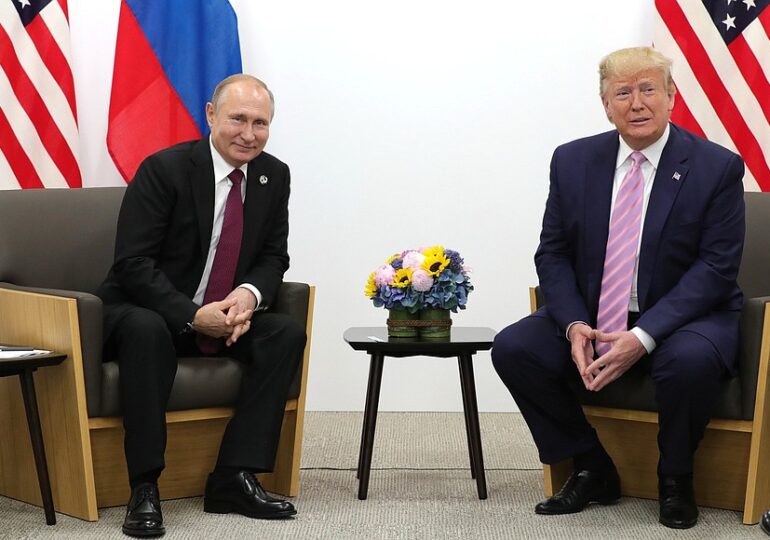American officials, who have strived to identify and secure a location for Friday’s summit between President Donald Trump and his Russian counterpart, quickly encountered a major issue: summer is the peak tourist season in Alaska, and the available and equipped options to host the two world leaders are extremely limited.
When some locals in Alaska learned that Trump and Putin would be coming to their state, a few started reaching out to the president’s allies with a proposal: could their homes be an option?
It is not clear if these offers ever reached the White House's ears, which did, however, make calls to locations in Juneau, the state capital, as well as Anchorage and Fairbanks, CNN reports.
- Trump's blunder reveals Putin as the key player in Trump's story with Zelenski left out
- Message from leaders of 26 EU countries ahead of Trump-Putin summit: Ukraine must have the freedom to decide its future
- Europeans fear they will remain a footnote in history while Putin seeks a deal with Trump
Organizers soon concluded that the only city offering viable options for the summit was Anchorage. Specifically, only the Elmendorf-Richardson military base, located on the northern edge of the city, met the security requirements for this historic meeting, although the White House had hoped to avoid the image of hosting the Russian leader and his entourage in an American military facility.
That's where the two presidents will meet on Friday, two White House officials said.
The summit is still largely in the preparation stages.
The top diplomats of the two countries - Secretary of State Marco Rubio and Foreign Minister Sergey Lavrov - discussed "certain aspects of preparation" on Tuesday, according to the Russian Foreign Ministry.
- War and peace in Alaska. What Trump, Putin, and Zelenski are after
- "Peace in Alaska". Does it help European security or not?
Typically, a high-stakes summit would be preceded by extensive negotiations on the agenda and outcomes. But Trump himself has stated that he approaches the meeting as a testing session, with few expectations in advance on how it will unfold. On Tuesday, the White House described it as a "listening session."
Landing in Alaska
The Trump administration and the Kremlin chose Alaska after lengthy behind-the-scenes negotiations, according to individuals familiar with the matter. There are few suitable places for such a meeting, especially considering the arrest warrant for war crimes issued against Putin by the International Criminal Court in 2023.
Therefore, Russia opposed a European city, such as Vienna or Geneva, where American and Russian leaders have met since the Cold War. While Putin himself proposed the United Arab Emirates as a "perfect fit" location, the White House hoped to avoid another long trip to the Middle East following Trump's visit in May.
Ultimately, according to sources, the choice came down to Hungary - whose Prime Minister, Viktor Orbán, is close to both Trump and Putin - and the United States as possible hosts.
American officials were thrilled and somewhat surprised when the Russian president agreed to a meeting right in the U.S. - on territory that was once part of the Russian empire.
The mystery of the meeting's origin
But how did they come to meet? That remains a mystery.
Trump's special envoy, Steve Witkoff, visited Moscow last Wednesday for a meeting with Putin, which led to the decision for this summit, although what Putin exactly said back then in Moscow largely remains unknown.
European officials spent much of last week trying to establish the parameters of the peace deal proposed by Putin, but some expressed frustration over Witkoff's lack of clarity.
Trump plans to listen to the opinions of European leaders in a Wednesday meeting, organized online by the Germans, so the president can hear their perspective before the Friday meeting. He promised to discuss with them over the phone, alongside Ukrainian President Volodymyr Zelenski, immediately after the Alaska summit ends.
Zelenski will not be present in Alaska for the summit, so any potential trilateral meeting is ruled out for now.
Instead, Trump will spend at least part of the summit in a tête-à-tête meeting with Putin, the White House said on Tuesday, giving the two time to have a discussion without being overheard by anyone except their translators.
"It's part of the plan," said Karoline Leavitt, White House spokesperson, when asked if the two presidents will meet one-on-one.

